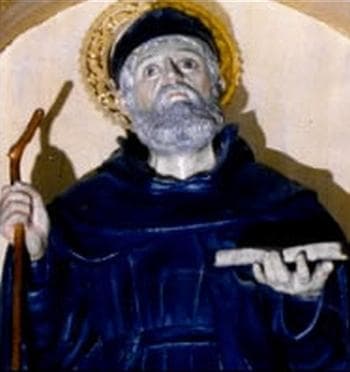
Blessed Pedro Del Barco
Blessed
Feast Day: August 12
Biography
Blessed Pedro Del Barco, also known as Pedro of Barco, was born in 1088 in Ávila, Spain. Blessed Pedro's early life was marked by his sincere piety and devotion to God. He displayed a strong inclination towards the Catholic faith, and this spiritual fervor only grew as he grew older.
Tragically, when Pedro's parents passed away, he found himself orphaned and alone. Seeking solace and a way to sustain himself, he moved to the modern-day region of Ribera Barcense. There, he started a garden with the intention of feeding not only himself but also the impoverished people of the area.
Blessed Pedro's generosity was not limited to providing physical sustenance. In addition to his work as a gardener, he took on the role of catechist, teaching and spreading the teachings of the Catholic Church to anyone willing to listen. Pedro's charisma and his deep faith inspired others, earning him a reputation for holiness and zeal for the faith.
Recognizing his extraordinary qualities, Blessed Pedro Del Barco was chosen to become a canon of the cathedral of Segovia. This position allowed him to serve the Church in a more official capacity, fostering his growth as a spiritual leader and bringing him in closer proximity to the faith.
Having established himself as a respected priest, Pedro eventually took up the life of a hermit near the banks of the Tormes River. In his secluded retreat, he dedicated himself fully to a life of prayer and contemplation, seeking a deeper connection with God and striving to grow in holiness.
Blessed Pedro Del Barco's impact was not limited to his immediate surroundings. His reputation for sanctity and dedication to the faith spread far and wide, earning him recognition throughout Spain. His feast days are celebrated on August 12th and November 1st in Ávila, Spain.
While Pedro's representation is not specified, his devotion to the Catholic Church and his life of service may be symbolized through various Christian symbols such as a crucifix, rosary beads, or a depiction of him teaching catechism.
Although formal canonization is not mentioned in the provided details, it is worth noting that the process of canonization can be lengthy and complicated, often taking many years or even centuries. Therefore, the lack of information regarding beatification or canonization should not undermine the recognition of Pedro Del Barco's holiness and the significant impact he had on those around him.